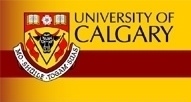Botany BOTA
Instruction offered by members of the Department of Biological Sciences in the Faculty of Science.
Department Head - J.I. Goldberg
Senior Courses
Botany 303 H(3-3)
Introduction to Plant Physiology
Basic principles of plant physiology, with an emphasis on how environmental factors influence plant growth and development. Topics include: external and internal controls of germination; growth; tropisms; reproduction; senescence; plant hormone physiology; phloem and xylem transport; the role of phytochrome; and stress physiology.
Prerequisites: Biology 231 and 233.
Note: Enrollment in this course may be limited. See explanation in Program section of Calendar.
Botany 309 H(3-0)
Plants and People
A review of the structure and function of plants. A survey of the nature of people's basic food plants and an overview of agricultural and forestry practices. Plant improvement by traditional and modern methods, and plant propagation.
Prerequisites: Either Biology 205 or 231.
Note: Not open for credit to Majors and Minors in the Department of Biological Sciences or to Natural Sciences program students with a Concentration in Biological Sciences.
Botany 321 H(3-3)
Plant Anatomy
The cell, tissue, and organ systems of vascular plants, with special reference to angiosperms. meristems, differentiation, and aspects of plant tissue development. An introduction to plant microtechnique.
Prerequisites: Biology 231 and 233.
Note: Enrollment in this course may be limited. See explanation in Program section of Calendar.
Botany 327 H(3-3)
Morphology and Taxonomy of Plants
The morphology of plants ranging from algae, bryophytes (non-vascular land plants), the primitive psilophytes to the angiosperms. Examples chosen to understand the origin of land plants and their subsequent evolution leading to highly diversified flowering plants.
Prerequisites: Biology 231 and 233.
Note: Enrollment in this course may be limited. See explanation in Program section of Calendar.
Botany 441 H(3-3)
Taxonomy of the Seed Plants
A study of plants in relation to classification, phylogeny, evolution and identification. Students are required to make a plant collection of fifty plant specimens for identification in the laboratory. It is recommended that the collection be made in the preceding summer.
Prerequisites: Botany 327.
Botany 501 H(3-0)
Plant Molecular Biology and Biotechnology
Organization of the plant genome. Plant gene structure. Comparisons between plant and animal genomes. The chloroplast genome and its expression. Coordination of chloroplast-nuclear gene expression. Regulation of plant gene expression by light, temperature and chemical stimuli. Molecular basis of plant hormone action. Tissue and organ specific gene expression. Plant transposable elements. Plant viruses. Plant genetic engineering. Gene transfer in plants. Plant DNA vectors. Plant genetic transformation and its uses in plant physiology, biochemistry and applied biotechnology.
Prerequisites: One of Biochemistry 341 or 393; Biology 233 and 331.
Botany 503 H(3-3)
Biochemistry of Plant Metabolism
Biochemical, molecular, and cellular aspects of plant metabolism with an emphasis on the role of each pathway in plant growth and development. The focus of study is metabolic pathways that are unique to, or exhibit unique features in, plants: photosynthesis, respiration, fatty acid metabolism, nitrogen and amino acid metabolism, and secondary metabolism.
Prerequisites: One of Biochemistry 341 or 393; Biology 331; and one of Chemistry 341, 353 or 355.
Note: Offered in even-odd dated academic years.
Note: Enrollment in this course may be limited. See explanation in Program section of Calendar.
Botany 507 H(3-3)
Special Problems in Botany
Lectures, seminars, term papers and training in theoretical and/or laboratory methods. After consultation with a Departmental faculty member who will supervise the chosen problem, a permission form obtained from the Department Office must be signed by the course supervisor before a student can register.
Prerequisites: Third or higher-year standing and consent of the Department.
MAY BE REPEATED FOR CREDIT
Botany 528 F(0-6)
Independent Studies in Botany
Original and independent thought, practical research and the completion of written and oral reports. After consultation with a Departmental faculty member who will supervise the chosen problem, a permission form obtained from the Department Office must be signed by the course supervisor before a student can register.
Prerequisites: Fourth-year standing and consent of the Department
MAY BE REPEATED FOR CREDIT
Botany 530 F(0-8)
Honours Research Project in Botany
Research project under the direction of one or more faculty members in the Department of Biological Sciences. Formal written and oral reports must be presented on completion of this course. Open only to Honours Botany students or Honours Biological Sciences students. After consultation with a Department faculty member who will supervise the chosen problem, a permission form obtained from the Department Office must be completed before a student can register.
Prerequisites: Fourth-year standing and consent of the Department.
Botany 543 H(3-3)
Plant Developmental Biology
Physiology, biochemistry, molecular and cellular aspects of plant growth and development. Emphasis on the coordinated regulation of gene expression, cell-cell communication, and signalling during development. Discussion on the methods used to study development, such as mutants of Arabidopsis and other model systems.
Prerequisites: Biology 331 and Botany 303 or 403 or 503.
Note: Offered in odd-even dated academic years.
Note: Enrollment in this course may be limited. See explanation in Program section of Calendar.
Graduate Courses
Enrollment in any graduate course requires consent of the Department. Only where appropriate to a student's program may graduate credit be received for courses numbered 500-599. 600-level courses are available with permission to undergraduate students in the final year of their programs.
Botany 633 H(3-3)
Recent Advances in Plant Physiology
Lectures, seminars and laboratories on a topic of current interest in plant physiology. Topic being offered will be announced at time of registration.
Note: Offered in odd-even dated academic years.
MAY BE REPEATED FOR CREDIT
Botany 645 H(3-2S)
Dynamic Aspects of Plant Ultrastructure
The ultrastructural and functional aspects of the cell, tissue, and organ systems of vascular plants. Analysis and interpretation of electron micrographs. Seminars on recent research development.
Note: Offered in even-odd dated academic years.
Botany 745 H(0-6)
Botanical Microtechniques
Principles and practice of preparation of plant tissues for light microscope study. Plastic embedding techniques, histochemistry, immunohistochemistry, quantitative cytochemistry, fluorescence microscopy, confocal laser scanning microscopy and photomicroscopy are included.
Note: Offered in odd-even dated academic years.

